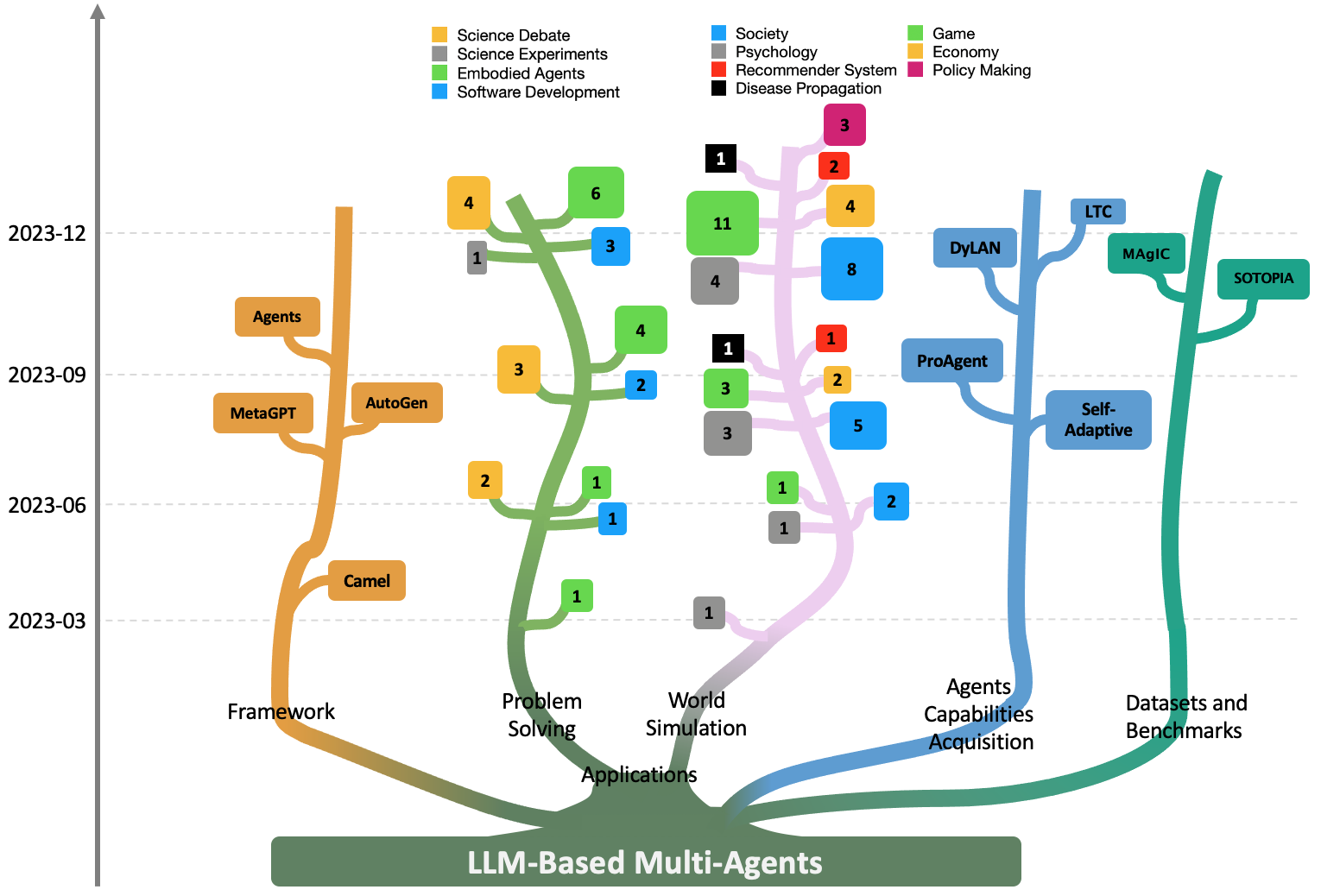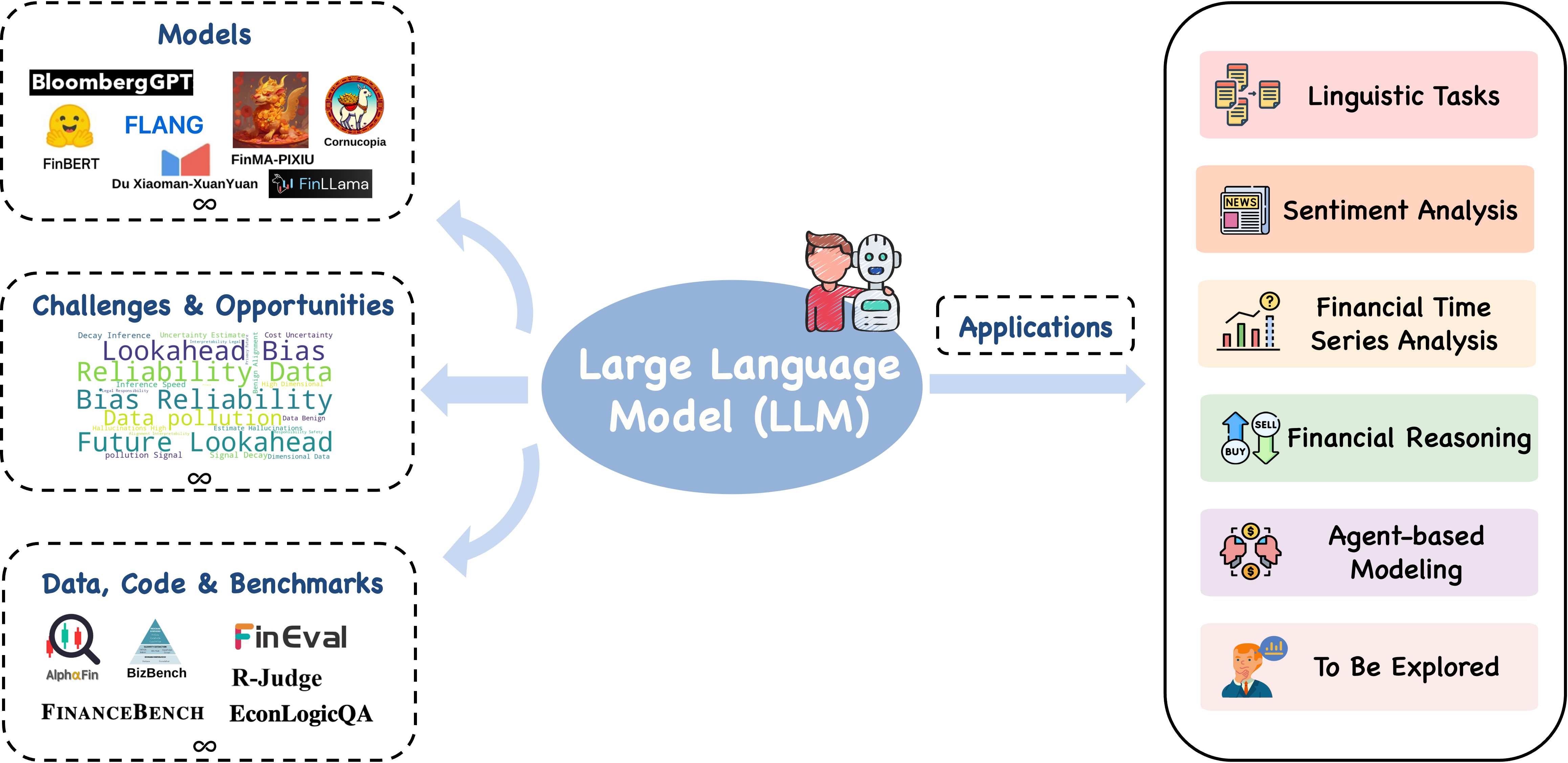Large Language Model Agent in Financial Trading: A Survey

0

Sign in to get full access
Overview
- Large language models have shown promising potential in financial applications, including asset management and quantitative trading.
- This paper provides a comprehensive survey of research on using large language models as agents in financial trading.
- The survey covers the architecture, training, and applications of these language model-based trading agents.
Plain English Explanation
Large language models are powerful AI systems that can understand and generate human-like text. Researchers have been exploring how to use these models to help with financial tasks like managing investments and automated trading.
This paper summarizes the key research in this area. It explains the different ways these language model-based trading agents are designed and trained. It also covers the various ways they are being used, such as for stock picking, portfolio optimization, and automated trading strategies.
The paper highlights the potential benefits of using language models in finance, like their ability to understand and reason about complex financial concepts. However, it also discusses some of the challenges and limitations that researchers are still working to address.
Overall, the survey provides a helpful overview of this emerging field and the progress being made in applying large language models to financial trading and investment management.
Technical Explanation
The paper begins by describing the general architecture of large language model-based trading agents. This typically involves pre-training a large language model on a broad corpus of text, then fine-tuning it on financial data and tasks.
The training process often involves techniques like reinforcement learning to teach the agent how to make profitable trading decisions. The models are trained on historical market data as well as other relevant information sources like news articles and earnings reports.
The paper then surveys the various applications of these language model agents in finance. This includes using them for stock selection, portfolio optimization, automated trading strategies, and other investment management tasks. The models can leverage their natural language understanding capabilities to extract insights from unstructured data.
Critical Analysis
The paper acknowledges some of the challenges and limitations of using large language models in finance. These include the difficulty of aligning the agent's objectives with human values, the potential for biases and mistakes, and the need for careful monitoring and interpretability.
Additionally, the paper notes that more research is needed to fully understand the capabilities and limitations of these models in financial applications. Factors like market conditions, data quality, and model robustness will all need to be studied further.
Conclusion
Overall, this survey paper provides a comprehensive look at the emerging field of large language model-based trading agents. While the technology shows promise, there are still significant hurdles to overcome before these systems can be reliably deployed in real-world financial settings. Continued research and development in this area will be crucial for unlocking the full potential of AI in investment and trading.
This summary was produced with help from an AI and may contain inaccuracies - check out the links to read the original source documents!
Related Papers


0
Large Language Model Agent in Financial Trading: A Survey
Han Ding, Yinheng Li, Junhao Wang, Hang Chen
Trading is a highly competitive task that requires a combination of strategy, knowledge, and psychological fortitude. With the recent success of large language models(LLMs), it is appealing to apply the emerging intelligence of LLM agents in this competitive arena and understanding if they can outperform professional traders. In this survey, we provide a comprehensive review of the current research on using LLMs as agents in financial trading. We summarize the common architecture used in the agent, the data inputs, and the performance of LLM trading agents in backtesting as well as the challenges presented in these research. This survey aims to provide insights into the current state of LLM-based financial trading agents and outline future research directions in this field.
Read more8/14/2024
💬

0
Large Language Models in Finance: A Survey
Yinheng Li, Shaofei Wang, Han Ding, Hang Chen
Recent advances in large language models (LLMs) have opened new possibilities for artificial intelligence applications in finance. In this paper, we provide a practical survey focused on two key aspects of utilizing LLMs for financial tasks: existing solutions and guidance for adoption. First, we review current approaches employing LLMs in finance, including leveraging pretrained models via zero-shot or few-shot learning, fine-tuning on domain-specific data, and training custom LLMs from scratch. We summarize key models and evaluate their performance improvements on financial natural language processing tasks. Second, we propose a decision framework to guide financial professionals in selecting the appropriate LLM solution based on their use case constraints around data, compute, and performance needs. The framework provides a pathway from lightweight experimentation to heavy investment in customized LLMs. Lastly, we discuss limitations and challenges around leveraging LLMs in financial applications. Overall, this survey aims to synthesize the state-of-the-art and provide a roadmap for responsibly applying LLMs to advance financial AI.
Read more7/10/2024


0
Large Language Model based Multi-Agents: A Survey of Progress and Challenges
Taicheng Guo, Xiuying Chen, Yaqi Wang, Ruidi Chang, Shichao Pei, Nitesh V. Chawla, Olaf Wiest, Xiangliang Zhang
Large Language Models (LLMs) have achieved remarkable success across a wide array of tasks. Due to the impressive planning and reasoning abilities of LLMs, they have been used as autonomous agents to do many tasks automatically. Recently, based on the development of using one LLM as a single planning or decision-making agent, LLM-based multi-agent systems have achieved considerable progress in complex problem-solving and world simulation. To provide the community with an overview of this dynamic field, we present this survey to offer an in-depth discussion on the essential aspects of multi-agent systems based on LLMs, as well as the challenges. Our goal is for readers to gain substantial insights on the following questions: What domains and environments do LLM-based multi-agents simulate? How are these agents profiled and how do they communicate? What mechanisms contribute to the growth of agents' capacities? For those interested in delving into this field of study, we also summarize the commonly used datasets or benchmarks for them to have convenient access. To keep researchers updated on the latest studies, we maintain an open-source GitHub repository, dedicated to outlining the research on LLM-based multi-agent systems.
Read more4/22/2024


1
A Survey of Large Language Models for Financial Applications: Progress, Prospects and Challenges
Yuqi Nie, Yaxuan Kong, Xiaowen Dong, John M. Mulvey, H. Vincent Poor, Qingsong Wen, Stefan Zohren
Recent advances in large language models (LLMs) have unlocked novel opportunities for machine learning applications in the financial domain. These models have demonstrated remarkable capabilities in understanding context, processing vast amounts of data, and generating human-preferred contents. In this survey, we explore the application of LLMs on various financial tasks, focusing on their potential to transform traditional practices and drive innovation. We provide a discussion of the progress and advantages of LLMs in financial contexts, analyzing their advanced technologies as well as prospective capabilities in contextual understanding, transfer learning flexibility, complex emotion detection, etc. We then highlight this survey for categorizing the existing literature into key application areas, including linguistic tasks, sentiment analysis, financial time series, financial reasoning, agent-based modeling, and other applications. For each application area, we delve into specific methodologies, such as textual analysis, knowledge-based analysis, forecasting, data augmentation, planning, decision support, and simulations. Furthermore, a comprehensive collection of datasets, model assets, and useful codes associated with mainstream applications are presented as resources for the researchers and practitioners. Finally, we outline the challenges and opportunities for future research, particularly emphasizing a number of distinctive aspects in this field. We hope our work can help facilitate the adoption and further development of LLMs in the financial sector.
Read more6/19/2024